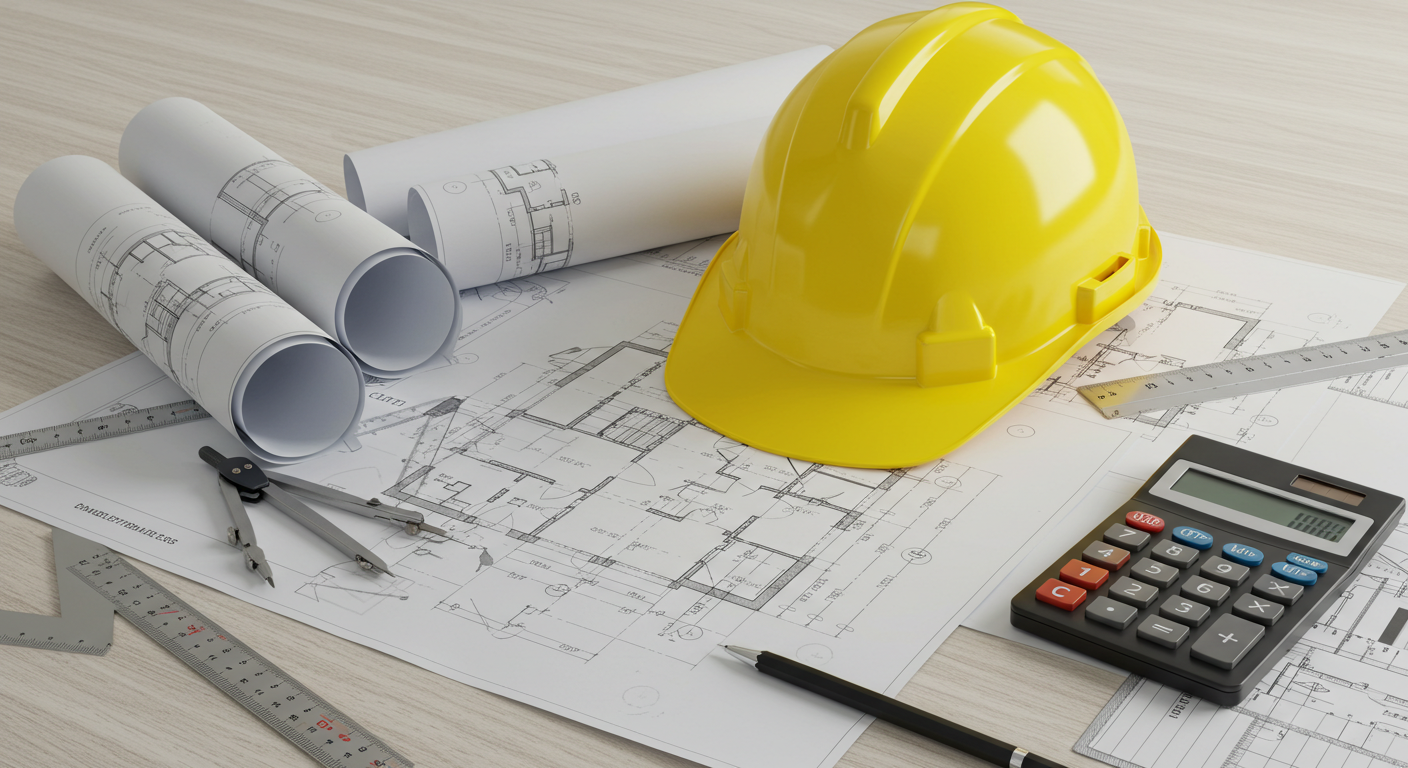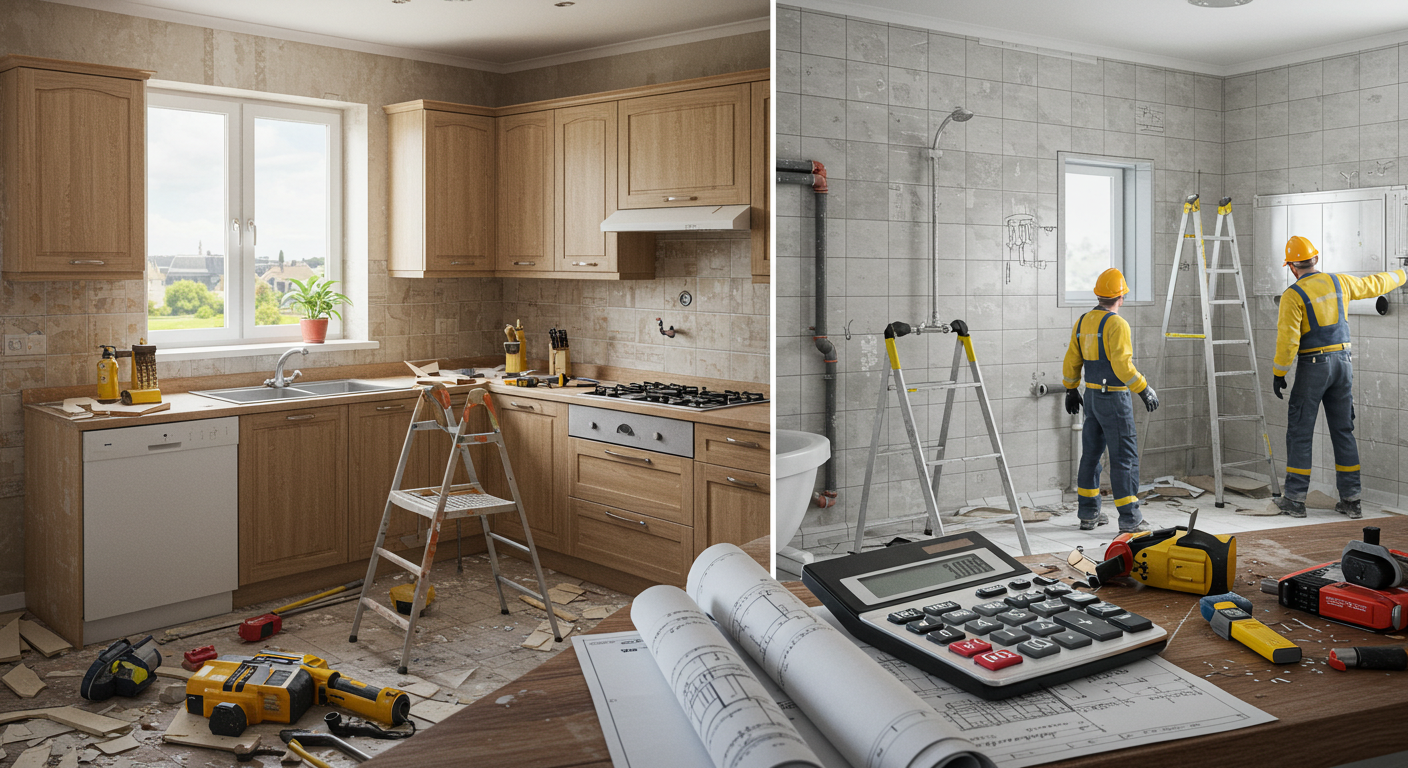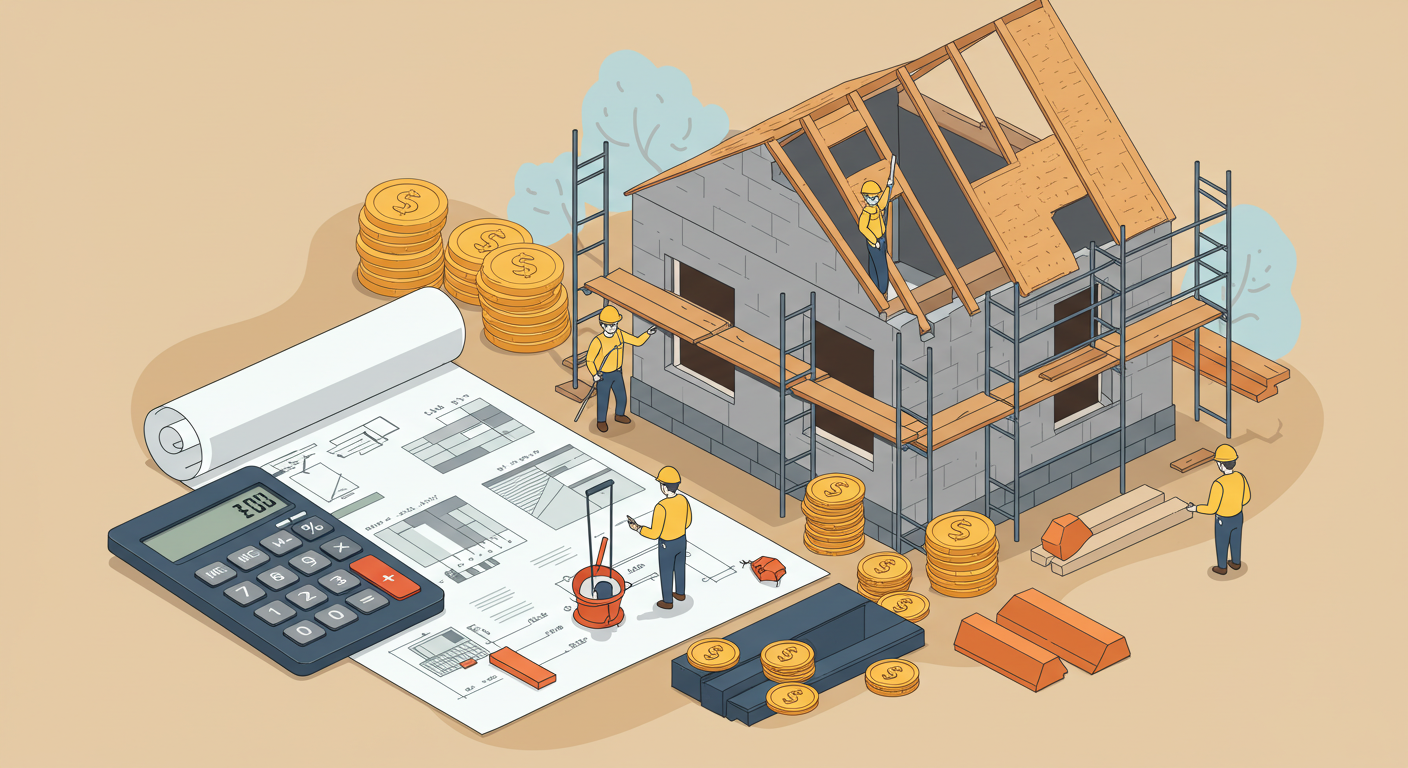Home rebuilding expenses in the United States widely vary in the range of $120 to $400 per square foot, generally due to the location, materials, labor, design complexity, and upgrades. A typical 2,000 sq ft house may cost $240,000 to $800,000 to be reconstructed from the very beginning. Yet, a comprehensive estimate is indispensable to steering clear of unexpected financial issues.
Understanding the true cost of rebuilding requires precise planning and forecasting. That’s where blueprint takeoff services make a difference. They help contractors and even family members determine the exact quantities of materials and labor directly from construction plans. With this information, professionals in the field can prepare accurate cost schedules long before the first step of the project begins.
Factors That Influence the Cost of Rebuilding
The number of variables that affect the total reconstruction price extensively is enormous. Location is the key factor; urban areas with high labor costs and stricter codes tend to be more expensive than rural zones. The volume of a house, ease of flow in design, number of floors, choice of a foundation, as well as finishes, would all generate the cost.
It is also possible that rebuilding after a disaster results in extra costs like debris disposal, providing temporary residence, and required changes following the updated building code.
Average Cost to Rebuild a Home Per Square Foot
The national average ranges as follows:
| Type of Construction | Cost Per Sq Ft |
| Basic/Low-End Build | $120 - $150 |
| Mid-Range Construction | $160 - $250 |
| High-End Custom Home | $300 - $400+ |
The cost of rebuilding a 2,500 square foot medium range home, as an example, can range between $400,000 and $625,000; however, luxury custom builds of similar size can still be more expensive and go beyond $1 million.
Home Demolition and Site Preparation Costs
The first step to rebuilding is tearing down the old structure. The demolition process involves the following:
-
Permits for the demolition
-
Dismantling of the structure
-
Removal of the waste
-
Clearing and leveling of the land
Generally, these services will set you back somewhere in the range of $5,000 to $25,000. Exact pricing hinges on the size of the home and the geographical location of the house.
Building Permits and Inspection Fees
Permission from the local authorities is necessary if you wish to rebuild. Generally, the permit fee is between $1,000 and $5,000. On top of that, various inspections will be done at different stages of construction, such as foundation, framing, electrical, plumbing, and final occupancy.
Dwelling units of higher complexity or those situated in areas bordering the sea, experiencing fires frequently, or having seismic outbreaks may need special permits that can augment the fees.
Architectural and Engineering Design Fees

In order to have your home planned, either new plans or modifications to the old ones, an architect is required. An engineer specializing in structures could be a necessity too, if you are rebuilding in a disaster-prone region.
Architects normally take 5 to 15% of the total cost of building as their fee, while an engineer may charge between $2,000 and $10,000, depending on the extent of the work.
Foundation and Framing Costs
Reconstruction goes hand in hand with the installation of a new foundation. A concrete foundation is more economical than one with a basement or a crawl space. Foundation costs range from $10,000 to $40,000 on average.
The home frame is the primary structure. It is a cost component that has a significant weight in the overall budget. Anticipate a framing price of $20 to $40 per square foot to be able to cover $40,000 to $100,000 for a typical-sized housing.
Roofing and Exterior Finishes
After the framing stage, the roofing and cladding are installed on the outside of the house. The roofing cost varies depending on the material used, among which asphalt shingles are the cheapest and metal or tile are the most expensive.
-
Asphalt shingles: $5,000 – $12,000
-
Metal roofing: $10,000 – $25,000
-
Stone or stucco exteriors: $10,000 – $50,000+
Plumbing, Electrical, and HVAC Systems
The new mechanical systems must comply with the latest regulations in the building codes. Systems such as:
-
Hardening of the plumbing system and installation of the required fixtures
-
Wiring and outlets
-
HVAC installation (heating/cooling)
The total can be between $30,000 and $80,000, depending on the size of the system and its efficiency.
Interior Finishes and Fixtures
Interior finishes are the biggest contributors to a home’s aesthetics and budget. It also includes:
-
Drywall and insulation
-
Paint and trim
-
Windows and doors
-
Fixtures and lighting
Costs vary with design decisions and can be between $50,000 and $150,000.
Kitchen and Bathroom Rebuilding Costs

These parts of the house are the most costly since the level of finishes and mechanical work is the highest. A kitchen refacing may be up to $75,000, and a bathroom may cost $10,000 to $30,000.
Materials include cabinets, countertops, tilework, plumbing fixtures, and appliances.
Rebuilding a Garage or Carport
Garages are unbelievably practical, and at the same time, they add value to your house. Rebuilding a typical attached garage would be somewhere between $15,000 and $30,000. However, detached or custom garages can cost over $50,000.
Carports or workshops are examples of auxiliary structures, which will continuously increase the amount needed to spend.
Landscaping and Outdoor Structures
After reconstruction, residential exterior finishing is usually:
-
Lawns, trees, and irrigation
-
Fences and walkways
-
Patios, decks, or pergolas
Normally, the figure in this category will be in the range of $5,000 to $50,000+, largely depending on the size of the lot and the landscaping design.
Temporary Living Expenses During Rebuild
If the construction work makes your home unlivable, you will also have to budget for a place to stay temporarily.
-
Rent or hotel: $1,500 – $5,000/month
-
Storage for belongings: $100 – $300/month
-
Moving expenses: $1,000 – $3,000
In addition to direct costs, indirect costs can increase the rebuild budget during a 6–12 month construction period.
Homeowners Insurance and Rebuild Coverage
First of all, verify to what extent your homeowners' insurance policy covers rebuilding costs if you want to go ahead with rebuilding. Coverage can be:
-
Actual Cash Value (ACV): Takes into account depreciation
-
Replacement Cost Value (RCV): Reimburses the original rebuild
Besides, some policies may have provisions for extended replacement coverage or ordinance upgrades, which represent environmental protection and energy-efficient changes that need to be implemented according to new code compliance. As always, clarify the limits and exclusions of your coverage with your company.
Final Cost Summary: Budgeting for a Full Rebuild
Here’s a breakdown of average rebuild costs:
| Category | Estimated Cost |
| Demolition & Site Prep | $10,000 – $25,000 |
| Permits & Inspections | $1,000 – $5,000 |
| Design & Engineering | $10,000 – $50,000 |
| Foundation & Framing | $50,000 – $140,000 |
| Roofing & Exterior | $20,000 – $70,000 |
| Plumbing, Electrical, HVAC | $30,000 – $80,000 |
| Interior Finishes | $50,000 – $150,000 |
| Kitchen & Bathrooms | $35,000 – $100,000 |
| Garage & Landscaping | $20,000 – $60,000 |
| Temporary Living Expenses | $10,000 – $40,000 |
| Total Estimated Rebuild | $250,000 – $750,000+ |
FAQs
1. What’s the difference between rebuilding and remodeling?
Rebuilding means tearing down the entire structure and starting over. Remodeling involves upgrading or altering parts of the existing structure without full demolition.
2. Can I rebuild my home bigger than before?
Yes, but you’ll need to obtain updated permits, zoning approval, and possibly utility upgrades. Local ordinances may limit expansion.
3. How long does it take to rebuild a house?
It typically takes 6 to 12 months, depending on complexity, location, weather, and permit delays.
4. Will my insurance cover the entire rebuild?
Only if you have full replacement cost coverage. Review your policy details to ensure code upgrades and extended coverage are included.
5. Is rebuilding cheaper than buying a new home?
Not always. Rebuilding allows for customization but can be more expensive if site prep, permits, and labor costs are high in your area.



